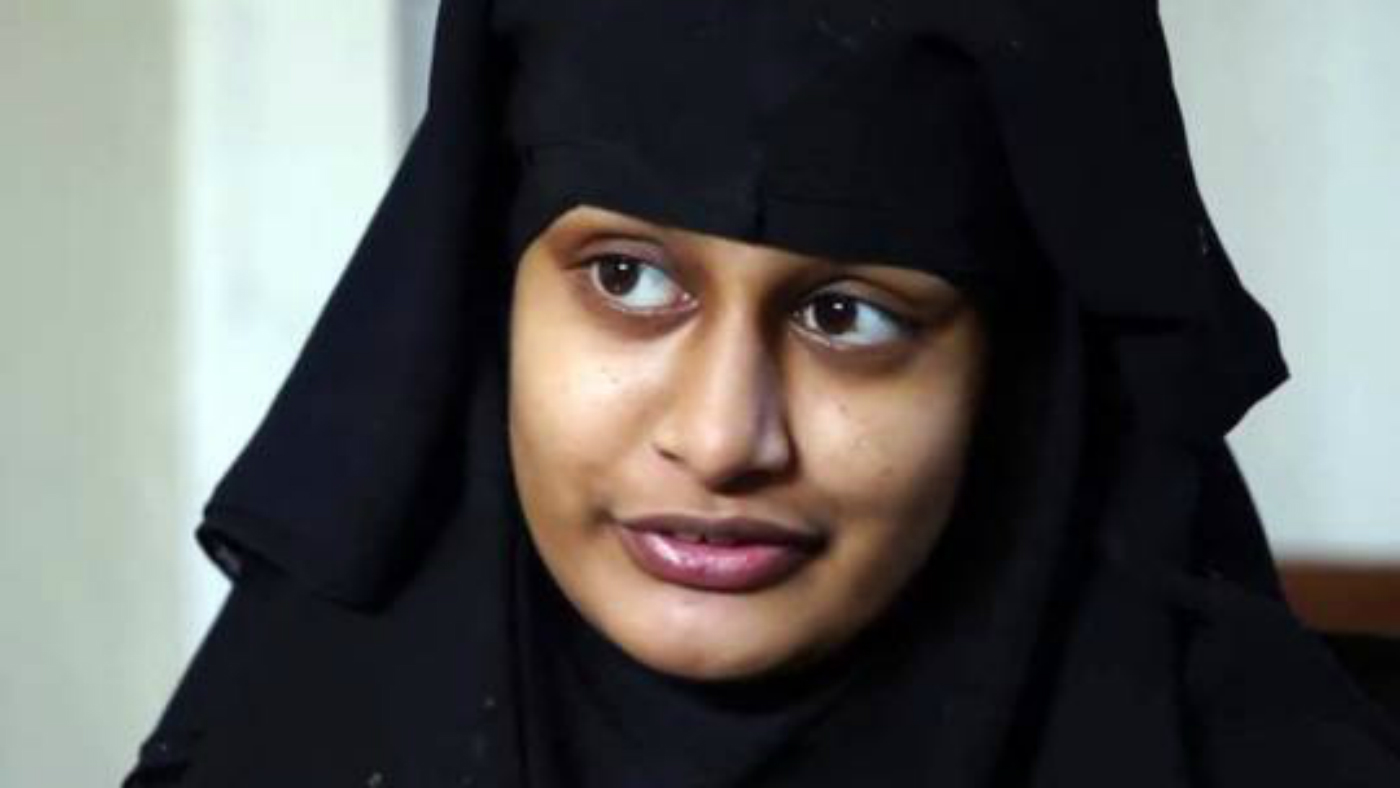What should be done with children of Isis jihadis?
Belgium agrees to take in orphans born to its citizens in Syria

A free daily email with the biggest news stories of the day – and the best features from TheWeek.com
You are now subscribed
Your newsletter sign-up was successful
Belgium has agreed to take in six orphaned children whose parents were members of Islamic State, according to the militia that is holding thousands of former jihadist fighters and their families in Syria.
The Jerusalem Post reports that the children were born to Belgian citizens who joined Isis and were subsequently killed in battle, though this has not been confirmed.
Syrian Democratic Forces (SDF) press officer Mustafa Bali announced on Twitter on Thursday that the US-backed militia alliance had handed over the children. He added: “Glad to see more countries are taking responsibility for their citizens but this must be extended to men [and] women in our camps and prisons, not only children.”
The Week
Escape your echo chamber. Get the facts behind the news, plus analysis from multiple perspectives.

Sign up for The Week's Free Newsletters
From our morning news briefing to a weekly Good News Newsletter, get the best of The Week delivered directly to your inbox.
From our morning news briefing to a weekly Good News Newsletter, get the best of The Week delivered directly to your inbox.
The SDF, which controls the part of Syria east of the Euphrates river, has warned that it will not be able to hold its thousands of prisoners indefinitely, Reuters says. A great number of those held in displacement camps are foreign and many are “unrepentant supporters of violent jihad”, adds the news agency.
On Monday, The Guardian reported that 12 orphans of French Isis fighters had been flown home and repatriated along with two Dutch children, who were due to be returned to the Netherlands by the French government. The 14 children were returned by Syrian Kurdish authorities.
Last month, human rights groups warned that at least 45,000 children born in the IS “caliphate” might soon become stateless, with the Norwegian Refugee Council dubbing them a “possible human time bomb”.
The question of what to do with the children of British jihadis has been widely debated in the UK following the death of Isis bride Shamima Begum’s three-week-old son in a Syrian refugee camp earlier this year.
A free daily email with the biggest news stories of the day – and the best features from TheWeek.com
The 19-year-old, who fled to Syria to join Isis in 2015, had asked to be allowed back to the UK with her son, having already lost two children. But Home Secretary Sajid Javid revoked her British citizenship - a controversial move that sparked debate in the UK.
In what The Guardian described as “an apparent policy shift” following the death of Begum’s third child, Hunt told the BBC in March: “We have been looking at how we can get in touch with these children, how we can find a way to get them out.”
Hunt said that it would be “incredibly difficult” to arrange the return of a British child from Syria, but added that if a child could be brought to somewhere with a British consular presence, such as Turkey or Iraq, it might be possible to provide help.
But the BBC reported in April that “there is still no plan to repatriate women and children, many of whose husbands have been killed or stripped of their UK citizenship”.
-
 Local elections 2026: where are they and who is expected to win?
Local elections 2026: where are they and who is expected to win?The Explainer Labour is braced for heavy losses and U-turn on postponing some council elections hasn’t helped the party’s prospects
-
 6 of the world’s most accessible destinations
6 of the world’s most accessible destinationsThe Week Recommends Experience all of Berlin, Singapore and Sydney
-
 How the FCC’s ‘equal time’ rule works
How the FCC’s ‘equal time’ rule worksIn the Spotlight The law is at the heart of the Colbert-CBS conflict
-
 Epstein files topple law CEO, roil UK government
Epstein files topple law CEO, roil UK governmentSpeed Read Peter Mandelson, Britain’s former ambassador to the US, is caught up in the scandal
-
 Iran and US prepare to meet after skirmishes
Iran and US prepare to meet after skirmishesSpeed Read The incident comes amid heightened tensions in the Middle East
-
 Syria’s Kurds: abandoned by their US ally
Syria’s Kurds: abandoned by their US allyTalking Point Ahmed al-Sharaa’s lightning offensive against Syrian Kurdistan belies his promise to respect the country’s ethnic minorities
-
 Israel retrieves final hostage’s body from Gaza
Israel retrieves final hostage’s body from GazaSpeed Read The 24-year-old police officer was killed during the initial Hamas attack
-
 China’s Xi targets top general in growing purge
China’s Xi targets top general in growing purgeSpeed Read Zhang Youxia is being investigated over ‘grave violations’ of the law
-
 Syria’s Islamic State problem
Syria’s Islamic State problemIn The Spotlight Fragile security in prison camps leads to escape of IS fighters
-
 Panama and Canada are negotiating over a crucial copper mine
Panama and Canada are negotiating over a crucial copper mineIn the Spotlight Panama is set to make a final decision on the mine this summer
-
 Why Greenland’s natural resources are nearly impossible to mine
Why Greenland’s natural resources are nearly impossible to mineThe Explainer The country’s natural landscape makes the task extremely difficult